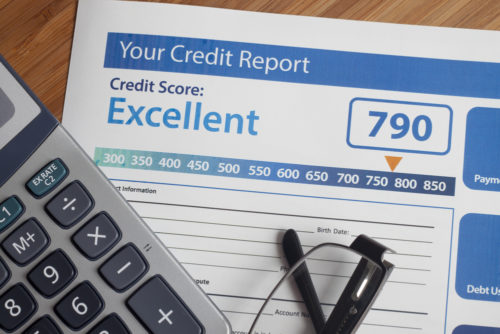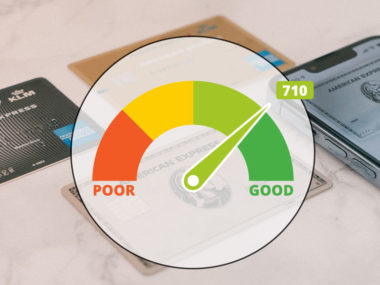You’ve probably heard the phrase “If it seems too good to be true, it probably is.” There’s definitely something to that advice, especially if you want to keep your good name intact.
There are all sorts of schemes that criminals use to steal your identity and ruin your credit in the process. Here’s a seemingly innocuous scenario you could face while scrolling through the rental listings on Zillow, Trulia or Craigslist: You find the perfect house. It seems legit because the ad isn’t full of typos, and the landlord seems like a real person because you Googled them and find out they actually live in the same city in which you are trying to rent.
You click on the ‘request a tour’ button. You receive a reply asking you to fill out the attached rental application, which is a PDF or Word doc, not a fancy online rental application through a legitimate web service. You complete the application by providing your Social Security number, driver’s license and phone number, email, current address, yearly income, and pretty much every piece of personal information you have.
In doing this, you’ve also just set yourself up for someone to steal your identity. The other rotten part is you don’t end up with the home of your dreams because the scammer removes the listing as soon as you email back your application.
Identity theft is when a person fraudulently obtains and uses someone’s private information for financial gain. It’s an insidious crime because the effects can creep up on the victim long after they have given out their personal information.
Your credit could be destroyed if you aren’t vigilant. Here are several ways identity theft destroys your credit:
Table of Contents
Credit Scores and Security Scores
Credit scores essentially rate the risk of lending money to people; they serve to protect lenders from making loans to the wrong people. In our modern age of fraud, hacking, and data breaches, we now have a company somewhat turning the tables by providing security scores to organizations and institutions responsible for protecting consumer data. Just like consumers can retain credit repair services in order to rebuild their credit, these organizations can pay to improve their security score.
Lines of Credit/Loans
Every time someone applies for a line of credit or a personal loan using your information, you get a ding on your credit score. When your credit score goes down, it affects your ability to secure the best possible APRs on loans. Hard inquiries and the number of loans/lines of credit are a key part of your credit score. While having some is good, too many and too fast looks risky, and can quickly knock down your score.
It’s hard enough getting your credit score high enough to buy a car or purchase a home, but when your credit score plummets because of someone else’s actions, identity theft can be a nightmare to recover from.
Even before you get your first bill, the thief is spending your money and buying things with their newly acquired line of credit. Sneaky thieves will use a fake address on the account so that you don’t get any warning at all until you get a collection’s notice or a knock at the door.
Credit Cards
If a thief has your personal information, they can easily open a credit card in your name. Every time the thief doesn’t make a payment on the monthly bill, your credit score takes a hit. Unpaid debt eventually goes to collection.
If an identity thief uses a person’s existing credit to make purchases, victims might find themselves unable to pay their huge credit card bills, resulting in late payments that hurt a credit score.
Phone and Utility Bills
Typically, we think of identity theft as fake IDs and stolen credit cards used to make unauthorized purchases. But there’s another form of identity theft that happens more often than you’d think: utility fraud.
Utility fraud is when someone uses your personal information to open a wireless plan or home utility account, such as gas, water and cable. Sometimes the utility company only requires a name, address and Social Security number and doesn’t verify the identity of the person.
As a victim of utility fraud, you don’t know your identity is being used until an unpaid bill appears on your credit report because it was turned over to collections. It can be a time-consuming process to get the mistake removed with the credit bureaus. Your credit score takes a hit, as a result.
Sadly, this kind of fraud isn’t only committed by strangers. Teens looking to get their first credit or debit card or loan are shocked to find their own parents have been using their kid’s SSN to default on utilities and tap into credit with their knowledge.
Hackers can steal your cell phone account in a technique called “phreaking” and make overseas calls, which are charged to the victim’s phone bill. The term is used to include anyone who tries to break into the security of any network.
Social Security
There are numerous ways to commit fraud with a social security number, and the effects are damaging. A crook may try to get medical care and government benefits by pretending to be you.
Another tactic used by criminals is applying for employment. Using your name, a thief can collect a paycheck and not file taxes. The onus is on you to explain to the IRS how you are a victim of identity theft, a process that isn’t easy to fix.
On the other hand, it’s easy for thieves to gather information about you. You expose yourself any time you buy something online or fill out paperwork. Fraudsters even dig through the trash to find old bills and statements.
When an identity thief opens accounts in your name, applies for credit cards, signs up for cable or other utilities, collects your Social Security benefits, etc., you end up the victim, the person holding the bag. Take as many precautions as you can to prevent serious damage to your credit. Also, if something sounds great, it doesn’t necessarily mean it is.
Today, there is a growing demand for credit repair services, not because people have bad financial habits, but because they’ve become victims of identity theft. Even in worst case scenarios, it is possible to recover from theft and fraud, but it may take the help of professionals to find and dispute all the fraudulent charges and accounts, and help get your credit score back up where it belongs.
For more on identity theft and your credit score, visit our credit score resource and learning center. For help on removing debts from your credit report that you are not responsible for, visit our dispute letter resource center.
Image Source: https://depositphotos.com/





